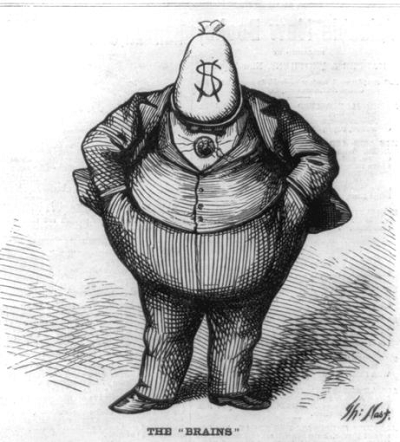• It’s Tariff Day, maybe. Nobody really knows what’s going to be announced in the next steps of Trump’s GWOT (Global War on Trade), or what parts of what’s announced today will be walked back later this evening or tomorrow or next week. Chaos is likely. Chaos seems to be the plan, to the extent there is any.
I imagine there’s a bunch of people at Big Box HQ planning the company’s responses to various scenarios. We sell lumber from Canada. We sell lots of stuff made all over the world. I wouldn’t want to be John B. tomorrow morning (the guy in our store who rolls around a printer cart every morning doing price changes).
 The main thing I expect from Tariff Day and from the days/weeks of clarification and qualification to follow is talk of “flexibility” and “exemptions” and similar language indicating that the blanket, across-the-board policy of taxing imports won’t necessarily be applied to all such imports from all such countries or companies. This is how the corruption works — the shakedown for, essentially, kickbacks, bribes, vigorish, etc.
The main thing I expect from Tariff Day and from the days/weeks of clarification and qualification to follow is talk of “flexibility” and “exemptions” and similar language indicating that the blanket, across-the-board policy of taxing imports won’t necessarily be applied to all such imports from all such countries or companies. This is how the corruption works — the shakedown for, essentially, kickbacks, bribes, vigorish, etc.
Some of that will be the kind of formal, official kickbacks into the public treasury — the Delaware model. But I expect a lot of the exemptions and exceptions and flexibilities and easements will be carved out for countries or companies that provide personal benefit to administration officials, starting with the guy at the top. Every such exemption or exception announced, I think, should be presumed guilty until proven innocent of lining Trump’s personal pockets.
Hamilton Nolan summarizes why experience suggests corruption is the correct lens to view all of this:
Trump is corrupt. So corrupt, in fact, that it is kind of alarming to me that we are not talking about his corruption even more than we are already talking about it. I mean, his family started some damn crypto companies and then he, as president, declared that he is going to get the US government to buy a ton of crypto. He is directly selling off pardons and commutations to felons who can pay adequate bribes. He is firing prosecutors who are Democrats and installing buffoonish loyalists in important legal positions, so they can conduct witch hunts on his behalf. The world’s biggest and most complex corporations have been reduced to paying bribes in order to directly beg the president for their priorities, at the club the president owns.
• “Bless Me, Father, For You Have Stolen Money.” Maggie Phillips looks at embezzlement in the Catholic church and the way bishops have mishandled priests who have mishandled money, which often looks a lot like the way many bishops mishandled priests who were found to have mishandled children.
Theft and the violation of trust are terrible things, of course, but I still remember how I felt reading that a local priest was arrested here in Chester County. It turned out he was a gambling addict and had been stealing from the offering plate to fund his addiction. Again, that’s bad, but my immediate gut reaction was relief. I remember thinking, “Wait … so it’s just money? He didn’t abuse any kids? Oh, thank God.”
• My wife went to Catholic school and, to this day, she is not a big fan of nuns. She got her “knuckles bruised by a lady in black” and, justifiably from the stories she tells, has a very Death Cab for Cutie opinion of nuns.
My first job after college involved working with the Interfaith Center for Corporate Responsibility, learning from dozens of amazing sisters who were all-in on social justice. Those “nuns in blue jeans” were heroes, and so I wound up with more of a Mary Gauthier opinion of nuns in general.
In our house, we sometimes refer to these different categories of sisters as “the nuns I know” and “the nuns you know” (pejorative or honorific, depending on which of us is talking).
Anyway, here’s a story about the nuns I know, the good kind: “An Open Letter to Members of the United States Congress” from the Sisters of Charity.
We stand in solidarity with all our sisters and brothers who seek a more just and compassionate world. We implore you to stand with us in advocating for policies that reflect the core values of human rights and human dignity, justice, and peace. Let us move forward together with a commitment to the call to love, to welcome the stranger, and to care for one another.
• Back in the ’90s, Jay Green read and admired Resident Aliens and After Christendom, two thoughtful books by Stanley Hauerwas and William Willimon that I also read and admired.
Green is now having second thoughts about everything he (and I) were thinking when we read those books 30 years ago:
I was wrong about what was unfolding, of course. And perhaps foolishly so. Post-Christianity has indeed come, but its impact on American believers looks drastically different from the visions of faithfulness I mused about in my Hauerwasian fantasies. I underestimated the “Take America back for God” prophets, credulously assuming they were a dying breed who would be gradually replaced by younger, sober-minded Christian realists. A hunger for taking-America-back-for-God while Making-America-Great-Again has risen sharply among many angry young (primarily male) Christians. This crowd is hardly finished with social power or political relevance, it turns out. In fact, they will do virtually anything to secure it, including an abdication of the teachings of Jesus itself.
MAGAfied post-Christianity offers an upside-down, photo-negative version of what I once imagined American Christianity might become. Rather than a chastened faith, drained of social power but instilled with a deeper capacity to follow Jesus, we are witnessing a rising brand of “Christianity” that venerates chest-thumping power, revels in vengeance, celebrates boastfulness, winks at racism, dismisses responsibilities for widows and orphans, unleashes terror on strangers and foreigners, and turns blind eyes to deception, corruption, and cruelty. It not only fails to give even lip service to the “soft” but central virtues of the New Testament Gospels (compassion, humility, cheek-turning, meekness, enemy-love), but it seems actively scornful toward all of them.
• The title for this post comes from a Johnny Cash children’s song called “Call of the Wild.” (It’s not a Johnny Cash classic, but it’s still Johnny Cash.)
I picked this song because the full lyric from the title is “Honk and holler as we go / going to see the Gulf of Mexico.”
And a song about Canada geese that still calls the Gulf of Mexico by its real name seems worth singing just about now.
















